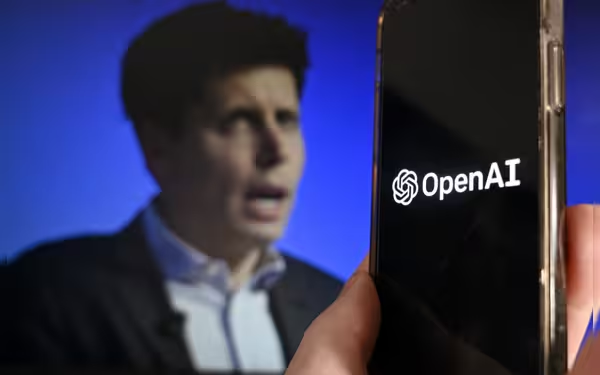Saturday, November 16, 2024 07:33 PM
OpenAI's Shift to For-Profit Model Raises Concerns
- OpenAI plans to transition into a for-profit business.
- Critics question the focus on profit over AI safety.
- Key executives depart amid organizational restructuring.
 Image Credits: mashable_me
Image Credits: mashable_meOpenAI plans to transition to a for-profit model, raising concerns about AI safety and leadership changes amid significant financial challenges.
OpenAI, the organization that gained immense popularity with its AI chatbot, ChatGPT, in 2022, is reportedly planning to transition into a for-profit business. This move has raised eyebrows, especially among its critics, including former investor Elon Musk. Originally founded in 2015 as a non-profit organization, OpenAI has been gradually shifting away from its initial mission. In 2019, it established a for-profit subsidiary, and since then, the organization has been steering towards a complete transformation into a profit-driven entity.
The current structure of OpenAI involves a non-profit board overseeing its operations, which was intended to uphold the organization's commitment to developing a "safe AGI that is broadly beneficial." However, concerns about the potential dangers of AI, particularly the risk of it surpassing human control, have been a significant part of OpenAI's narrative. The situation escalated late last year when the non-profit board controversially fired CEO Sam Altman, leading to a series of events that ultimately reinstated him. Critics accused Altman of prioritizing growth over AI safety, raising questions about the organization's direction.
OpenAI has attracted substantial investments from major companies, including Microsoft, which have poured billions into the organization. Despite this financial backing, OpenAI is projected to incur significant losses this year. As these tech giants seek returns on their investments, it appears that OpenAI is increasingly focusing on profit motives. To fully embrace this shift, the non-profit board must be dissolved, and it seems Altman is actively pursuing this goal.
In a significant development, OpenAI's Chief Technology Officer, Mira Murati, announced her departure from the company on the same day the restructuring report surfaced. Following her announcement, other key figures, including Chief Research Officer Bob McGrew and VP of Research Barret Zoph, also expressed their intentions to leave. This exodus indicates that OpenAI is undergoing substantial changes, not only in its operational framework but also within its leadership.
While OpenAI has stated that its non-profit will continue to exist, it will only hold a minority stake in the newly formed for-profit company. This shift suggests that OpenAI will be willing to take more risks in pursuit of profitability, operating more like a typical tech startup. However, it remains uncertain whether these risks will effectively address the financial challenges facing the for-profit entity or yield a positive impact on society.
OpenAI's transition to a for-profit model marks a significant turning point in its journey. As the organization navigates this transformation, it will be crucial to monitor how it balances its profit-driven goals with its original mission of ensuring the safe and beneficial development of artificial intelligence. The future of AI and its implications for society hang in the balance, and the decisions made by OpenAI in the coming months will undoubtedly shape the landscape of technology for years to come.













